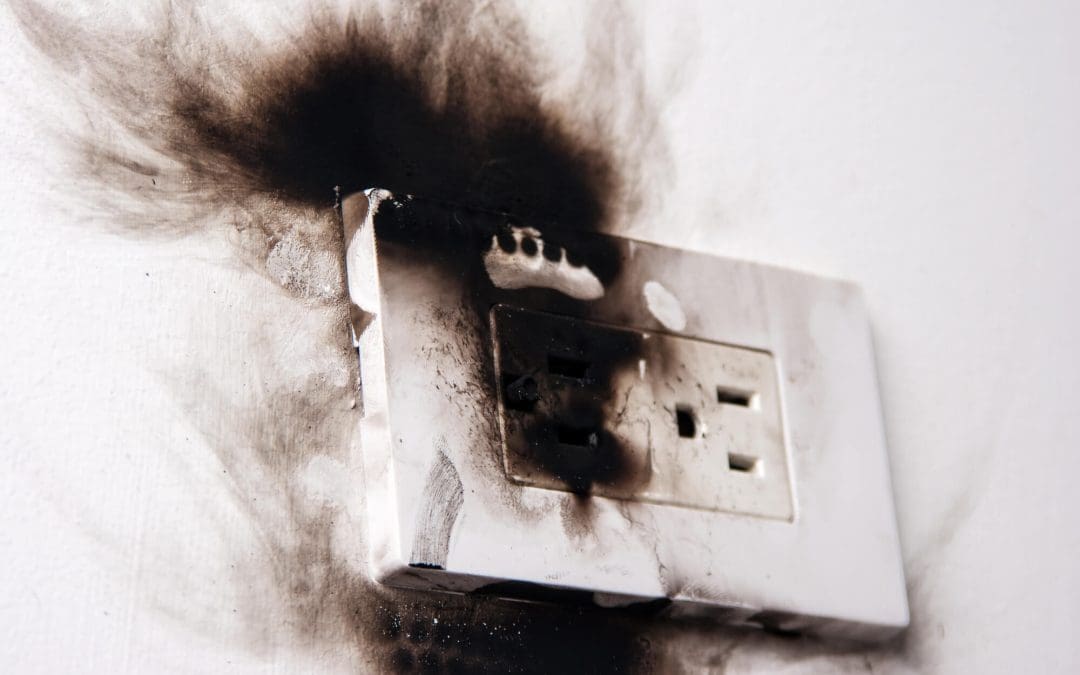Electrical issues in your home can pose serious risks if left unaddressed. Understanding the warning signs of electrical issues is crucial for maintaining a safe house. Here are some key indicators that you may have an electrical problem in your home.
Flickering or Dimming Lights are the Most Common Signs of Electrical Issues
One of the most common signs of an electrical issue is flickering or dimming lights. If your lights are inconsistent, it could indicate a problem with the circuit or a loose connection. While occasional flickering may not be a concern, persistent issues could point to something more serious, such as overloaded circuits or faulty wiring.
Frequent Circuit Breaker Trips
Circuit breakers are designed to protect your home from electrical overloads by cutting off the power when necessary. However, if your circuit breaker trips frequently, it could indicate an underlying problem. This might be due to overloaded circuits, short circuits, or issues with specific appliances. Frequent trips should not be ignored, as they can lead to more significant electrical problems or fire hazards.
Unusual Odors Can Be Signs of Electrical Issues
A burning smell in your home is a serious warning sign of an electrical issue. If you detect an unusual odor, particularly near outlets or electrical panels, it could indicate overheating wiring or melting insulation. This situation requires immediate attention, as it could lead to an electrical fire. If you notice a persistent smell, turn off the power to the affected area and contact a licensed electrician.
Warm or Discolored Outlets
If your outlets feel warm to the touch or show signs of discoloration, it could be a sign of an electrical problem. Warm outlets might indicate that the wiring behind them is overheating, which can be dangerous if not addressed. Discoloration, such as scorch marks or browning, means something is wrong. These issues should be evaluated by a professional to prevent potential fires.
Buzzing or Humming Sounds
Electricity should flow silently through your home’s wiring. If you hear buzzing or humming sounds coming from outlets, switches, or electrical panels, it’s a sign that something isn’t right. Loose connections, faulty wiring, or overloaded circuits could cause these noises. Ignoring these sounds could lead to more significant electrical problems and increase the risk of a fire.
Shocks or Sparks
If you experience mild shocks when touching an appliance, switch, or outlet, it’s a clear sign of an electrical issue. Shocks can indicate grounding problems, faulty wiring, or issues with the appliance itself. Similarly, if you see sparks when plugging in or unplugging devices, it could signal that the outlet is damaged or that the wiring is faulty. Both situations require immediate attention from a qualified electrician.
Poorly Functioning Outlets or Switches
If your outlets or switches don’t seem to work correctly, it’s a sign that something may be wrong with your electrical system. Outlets that don’t hold plugs securely, switches that don’t always turn on, or lights that flicker when you use a switch are all indicators of potential issues. These problems could be due to loose wiring, worn-out components, or other electrical faults.
Persistent Electrical Surges are Serious Signs of Electrical Issues
Electrical surges can occur for various reasons, including lightning strikes, faulty appliances, or issues with your home’s wiring. While occasional surges are normal, frequent surges can damage your appliances and electronics and indicate a problem with your electrical system. If you notice persistent surges, it’s essential to have your wiring inspected to identify the cause.
Disorganized or Overcrowded Electrical Panel
An electrical panel that is disorganized or overcrowded with wires can be a sign of poor electrical work or an outdated system. This can lead to short circuits, overloads, or other dangerous situations. If you’re unsure about the condition of your electrical panel, it’s wise to have it inspected by a licensed electrician to ensure it meets safety standards.
Electrical issues in your home should never be ignored. If you notice any of these warning signs, take action immediately. Contact a licensed electrician to assess the situation and perform necessary repairs. By addressing electrical problems early, you can prevent potential hazards and ensure your home remains safe for you and your family.
FAQs on Signs of Electrical Issues
Can faulty electrical wiring affect my home’s energy efficiency?
Yes, faulty wiring can lead to energy inefficiency by causing appliances to work harder or increasing the risk of electrical leakage. This inefficiency can result in higher energy bills and unnecessary appliance wear and tear. Ensuring that your wiring is up to date and in good condition can help maintain your home’s energy efficiency.
How often should I have my home’s electrical system inspected?
It’s generally recommended to have your home’s electrical system inspected every 3 to 5 years, especially if your home is older or you’ve added significant new appliances or electronics. Regular inspections can catch potential issues before they become major problems, ensuring your home remains safe.
What are the dangers of using outdated electrical outlets?
Outdated electrical outlets, such as two-pronged outlets without grounding, can pose several risks, including electrical shocks, short circuits, and fire hazards. Upgrading to modern, grounded outlets improves safety and allows for the use of newer appliances.
Can electrical issues affect the performance of my home’s Wi-Fi or smart devices?
Yes, electrical issues like power surges or unstable circuits can disrupt the performance of Wi-Fi routers and smart home devices. Frequent interruptions in power can cause these devices to reset or malfunction, leading to connectivity issues. Ensuring a stable and well-maintained electrical system can help maintain the consistent performance of your smart home technology.
Veterans First Home Inspections provides inspections for homebuyers and homeowners in the Washington, DC, area. If you’re buying or selling a home, contact us to request our services.

